Borroloola residents call out ‘horror’ evacuation from Cyclone Megan
More than 300 Borroloola residents are preparing to head home after a disastrous evacuation from their cyclone ravaged town. Read their stories of surviving the storm.
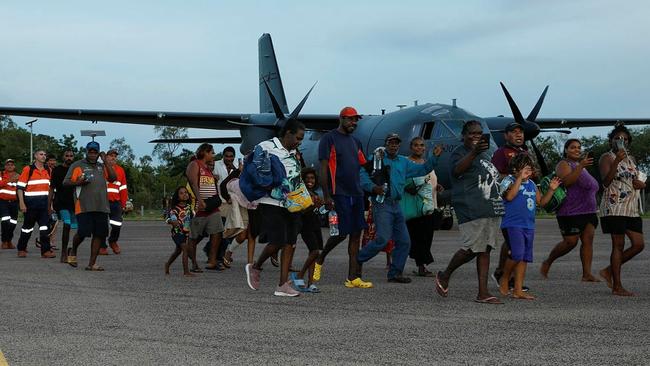
Weather
Don't miss out on the headlines from Weather. Followed categories will be added to My News.
Territorians who were forced to endure a cyclone due to a botched evacuation have voiced their anger and horror over the inadequate emergency response.
More than 700 Borroloola residents were hit by Cyclone Megan’s fury with wind gusts of up to 130 kilometres per hour on March 18.
A partial evacuation days later meant hundreds were left behind during record-breaking flooding without telecommunications, limited food and stranded in unsuitable shelters.
On Thursday, Secure NT confirmed that more than 300 Borroloola residents would be heading home this weekend, nearly two weeks after the cyclone struck their town.
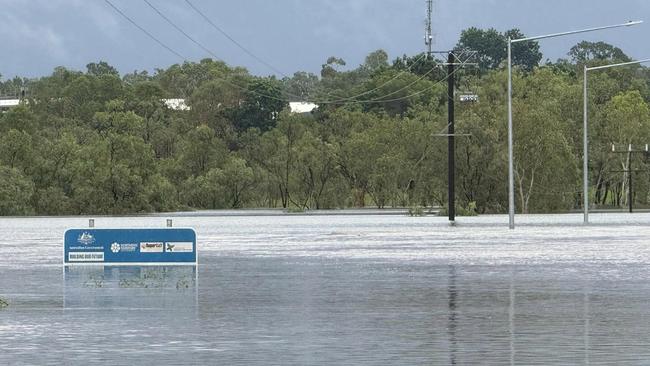
More than half of those will be put on a 12-hour bus trip from Friday night, while older people, medically vulnerable and families with children under three will be flown in on Saturday.
Incident Controller Superintendent Neil Hayes said anyone who organised their own escape from Borroloola could still contact the call centre on Thursday, via 1800 888 901, to register for the trip home.
While the initial disaster phase is over, the Northern Land Council said many were left traumatised and have called on the Federal and Northern Territory governments to address poor emergency communications, evacuation processes, and future preparedness.

Initial plans to evacuate the town on Monday — the day before the cyclone made landfall — were aborted due to high winds, leaving hundreds of anxious residents waiting for hours on the tarmac in the rain and wind, without food.
Resident Diane Norman said one man suffered a seizure while exposed to the pre-cyclone conditions.
“Having all those old people stand like that, it was very sad,” Mrs Norman said.
Iris Hogan said she was also among the hundreds to be turned back on Monday, only to find her home had been damaged by the storm.
“For three nights I was sleeping with no power … there was eight of us sleeping in that room, hungry because no shops open,” Mrs Hogan said.
Multiple residents reported having tense relations with police during the emergency, with Mrs Hogan describing them as “rude and racist” after being shouted at to get on a bus, even if it meant leaving her family behind.
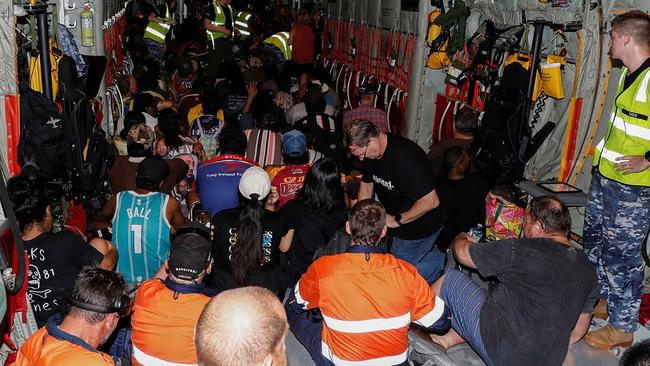
“I said who is going to look after me? I’m not going on the bus, I’m staying with my kids – we are going to die together then,” she said.
Acting Assistant Commissioner Matt Hollamby said he was unaware of any reports of racist behaviour “and if it had we would have taken some fairly swift action”.
“We get it that not everyone was happy and not everyone felt they were communicated with in a timely matter, but our emphasis was on protecting lives,” he said.
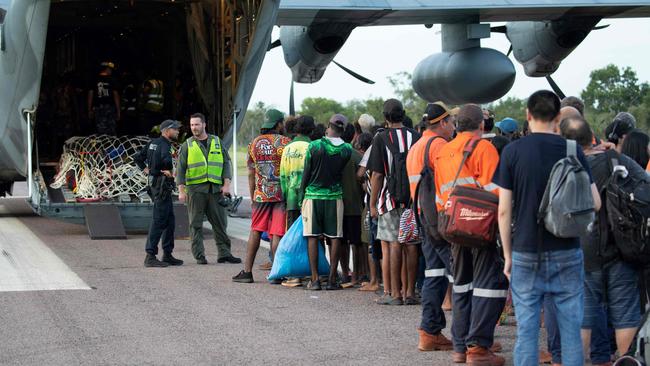
When the Defence Force planes eventually arrived on Wednesday residents were asked to only take one bag of belongings and leave their homes, not knowing what state it would be in when they eventually returned.
Mrs Hogan said she had to be carried onto the plane: “I was shaking, my bones, it was just terrible. I cried in the plane”.
“Some of the people saw that they lost their houses. Completely gone,” Mrs Norman said.
But Mr Hollamby said there was “little to no substantial damage” with some houses had “water lapping” damage, while trees had fallen on other homes.
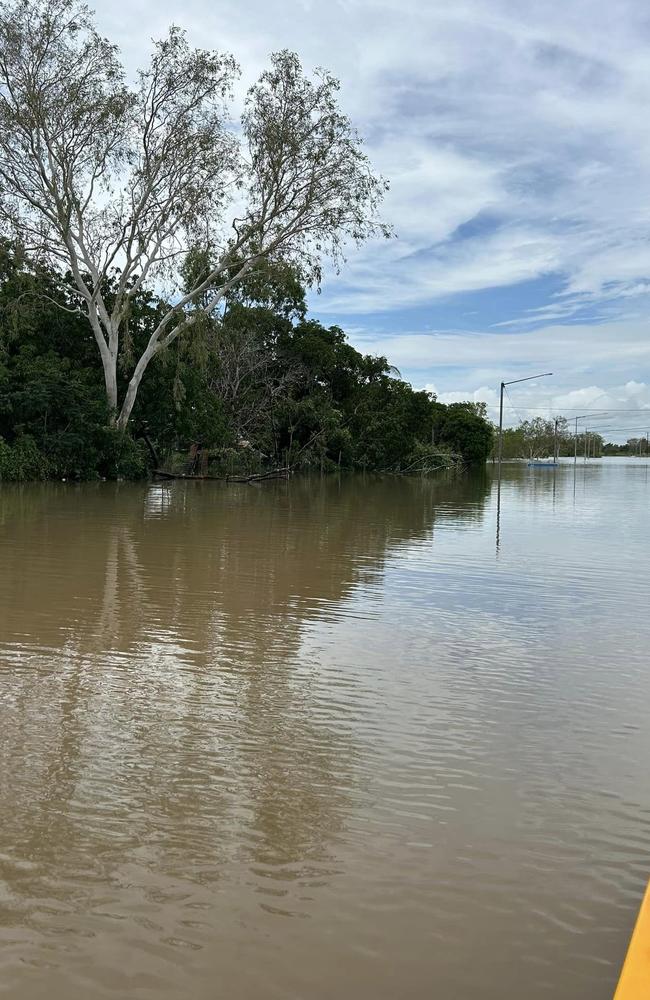
Due to damage to the telecommunication infrastructure those left behind were completely cut off for days, while a Bureau of Meteorology flood metre running of 3G/4G networks meant that river levels could not be accurately tracked.
Mr Hollamby said unlike the Daly River, which has multiple sensors for more accurate data, there was “scope” to improve flood monitors on the McArthur River.
NLC chair Matthew Ryan has called out the poor communication in the natural disaster and the need for proper cyclone shelters and culturally appropriate emergency accommodation.
“Lessons are not being learned and as a result our communities continue to suffer,” Mr Ryan said.
“We cannot wait for the next emergency to happen and have the same problems over and over again.”





